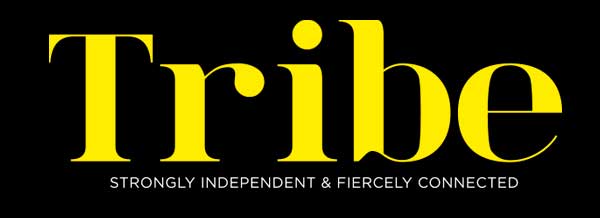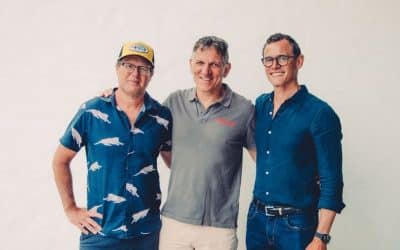
For digitalizing Our Process – Sabine Dall’ Omo
SABINE DALL’OMO is the Siemens CEO for Southern and Eastern Africa
Dall’Omo’s leadership extends beyond South African borders as she is entrusted with multiple responsibilities (in 24 different countries), that also include managing the risks of the Covid-19 pandemic and business initiatives.
What does digitalisation mean for you as a business leader and for your company?
Digitalisation is actually what makes our business portfolio at Siemens. Our whole solutions and services are subject to digital technology which we apply, not only within our company but also to the betterment of our customers, essentially which is what Siemens is about.
What challenges have you faced since the start of the pandemic and what initiatives has Siemens been involved in during this time?
When COVID-19 hit us, we were not really sure how things would work out with all the restrictions and the borders closing. So, digitalisation in the context of COVID-19 over the last 18 months really helped us to continue business and it actually helped us to digitalise certain transactions and our offices outside of South Africa much faster than we would have thought before. If we were to summarise what has happened over the last 18 months, we would say we actually got a much higher level of productivity out of the organisation because we used technology to keep in business. If you look at the initiatives which we took forward during the COVID time, our aspect was always to see how we could help society in the context of ensuring we could fight the Covid-19 pandemic. Equipment and material wasn’t available at the time, for instance masks and ventilators. We worked with the CSIR in a partnership with the Solidarity Fund to produce 20 000 non-invasive ventilators, where we used our team centre and Mendix local software to help to design and deploy the product to the various manufacturing hubs within South Africa. This was achieved in a record time of just two and a half months, from the initial idea until the ventilators had been manufactured. We donated funding towards Covid-19 fighting efforts as part of the Siemens help initiative. We also partnered up again with the CSIR on a memorandum of understanding to roll out digital skills within TVET colleges.
Would you say those initiatives will be long lasting and even though they were born through the pandemic they will have major impact?
Some of the initiatives will have major impact as they also outlined how we could deploy the same systems and methods to the African continent at large. Ultimately most of these initiatives will go beyond a short time-frame as they will have long term impact and can be replicated.
Sustainability is a key element within the Siemens offering. Can you tell us a bit more about the Degree Sustainability Framework?
We embedded sustainability and ethics into our corporate strategy as a pillar of our strategy. When you look at DEGREE, each capital letter of the word stands for our company values. If you take the D, it stands for De-carbonisation, the E for Ethics, G for Governance, the R stands for Resource efficiency, and then the two EE’s for Equitable and Employable. The DEGREE Framework outlines our strategic aspirations, which then feeds into all of our product development as well as the markets which we are going to serve.
How do you feel the rapid pace of digitalisation is shaping and will reshape the future of business in Africa?
The Covid-19 pandemic has outlined that digitalisation can help to bring more services onto the continent. Digitalisation can aid in the functionality of carbon neutral technology like virtual power plants, water management and goods management among other aspects. Through the pandemic we realised we could deploy these kind of technologies on the African Continent. We will continue to make use of these advantages which have been achieved, so from our point of view we see great opportunities on the African continent and ultimately digitalisation will improve the living conditions of a large part of the population.
What do you feel would differentiate Siemens from its competitors in this digital era?
We have embedded sustainability and climate aspects into our strategy. These are key areas of our focus. In this regard we make sure that we serve these industries and our customers to the extent that they can achieve their sustainability goals. Siemens has a target to be net zero by 2030 in all the locations we are present in across the globe. We want to ensure every Siemens Company contributes to a positive impact on the climate. Werner von Siemens, who founded Siemens, said that he would not put the risk of the company and society ahead of a short-term goal to make profit and that is what clearly differentiates us from our competition. Our first goal, particularly here on the African continent and in South Africa is that we work with the communities and societies we are active in, so those societies can benefit from our presence.
What do you feel makes an effective modern leader today given the circumstances that we find ourselves in?
As a leader in a corporation like ours or in any other corporation, the last 18 months have more than ever, highlighted how important it is to look after your employees. This is important because without the staff that is committed to serving customers and the company, your organisation cannot move forward. That is the most important aspect to be effective, and this has to be managed by the leader of the organisation in my opinion.
What can we expect from Siemens moving forward in terms of tact and vision?
Our business is very much about sustainable technology going forward; therefore that is where we will be putting all our effort. We believe that companies like ours can make a difference. We have the ability to make a difference for generations to come through setting the foundation of the age of digitalisation. This is the core focus moving forward.
Related Articles
Related
Animarem: Manley Hopkins event, Pathway to Purpose, sold out in South Africa
The event signals people's commitment to achievement in 2023. Animarem's sold out "Pathway to Purpose" event signals people's commitment to achievement in 2023Renowned global adventurer, keynote speaker, and leadership advisor, UK's Manley Hopkinson, saw a sellout...
Lift as you rise
SERVANT LEADERSHIP WILL DEFINE OUR FUTURE Prof. Bonang Mohale is an accomplished academic, former business executive and a modern leader. Mohale is the Chancellor of the University of the Free State, President of Business Unity South Africa and Professor of practice...
For Showing Us The Potential Of Our Beauty – Ann Kathrin Joos
Ann-Kathrin Joos is the founder and CEO of Standard Beauty. A skincare brand that has been blazing trails recently in South Africa.Ann-Kathrin noticed the modern trends in skincare and the hype around a particular skincare brand based overseas, and then had the idea...



